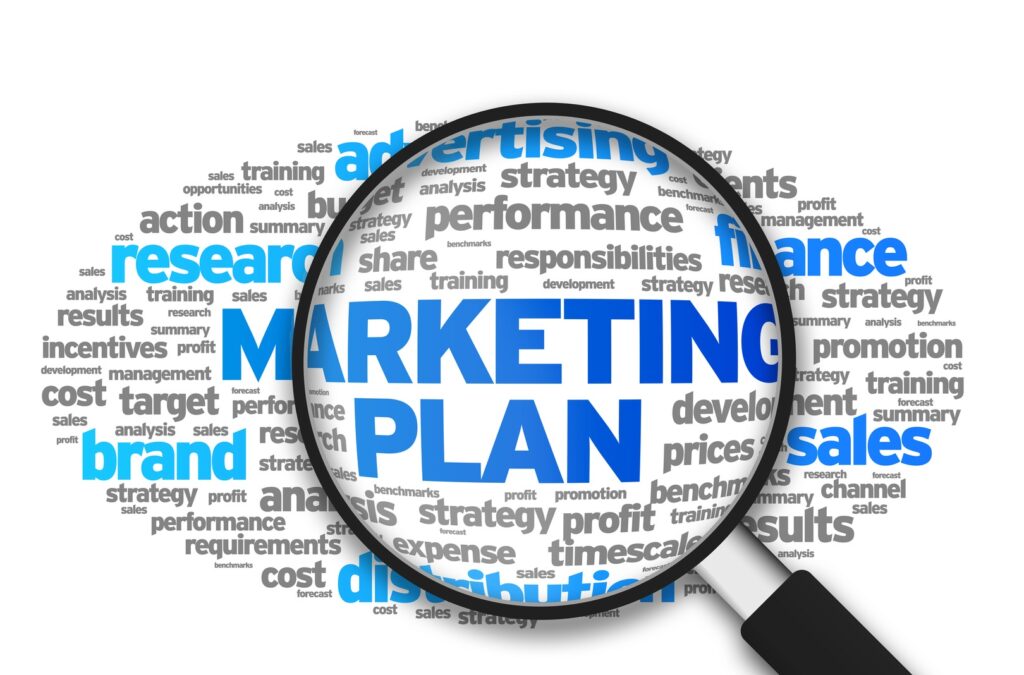Post map
ToggleA well-established marketing budget is vital to a business’s success in achieving its goals. However, if you are starting, budgeting can be difficult because you do not know how much to allocate to each specific marketing channel. In today’s article, Optimal FB Agency will show you how to calculate budget for a marketing plan to get the best ROI.
The importance of a marketing budget
A marketing budget is the money a business spends on marketing activities, and promoting products and services. Costs associated with a marketing budget usually include advertising, promotions, and public relations. Businesses often allocate marketing budgets over a certain period, which can be annual or quarterly.
Effective budgeting will help create marketing activities that align with business goals and track progress against spending. This gives the business flexibility in running projects and any changes in finances. A marketing budget helps the marketing team to have the necessary preparation to create effective projects that bring more profits to the business.
For any business that wants to achieve its goals, it is necessary to set up a suitable marketing budget. Implementing an effective marketing plan not only requires creativity and effort but the business needs to ensure that there is enough budget to cover the costs associated with running the campaign.
When planning a suitable marketing budget, allows the business to allocate its resources to the tactics that will bring the highest returns. Determining the marketing budget in advance will highlight the areas that need more investment and guide what to prioritize. Furthermore, budget planning helps the business to optimize marketing costs because the previous data is used to achieve the defined marketing goals. In addition, please see more information about How much does marketing and advertising cost in 2024?

Things to consider when budgeting for a marketing plan
There are several factors that businesses need to consider when budgeting for a marketing plan, including:
Company revenue
The amount of money a business makes will influence how much money is spent on marketing projects. Gross revenue is the amount of money a company makes before any deductions or allowances are applied. Businesses need to calculate the financial resources for a marketing plan based on past data by testing the product. Once you have implemented a few marketing efforts and have the data, you can determine how much money to spend per customer as well as future marketing campaigns. These are the main components when determining your marketing budget.
Total cost
When planning a marketing budget, leaders evaluate the total costs of the company every quarter. This includes the costs of internal teams, contractors, part-time employees, and departmental expenses. Leaders often evaluate the costs of all departments, including non-marketing departments, before allocating a marketing budget.
Business stage of growth
Depending on the size and age of the business, a company may have different marketing needs. New companies often need more marketing efforts to promote their brand and reach their target customers. However, depending on previous marketing tactics, established businesses may spend on marketing to increase their presence, retain current customers, and attract new customers. Marketing needs and budgets will vary with each stage of business development.
Startups typically spend 10 to 20% of their total revenue and projected revenue on marketing. While small and medium-sized businesses have reduced their marketing budgets to around 8 to 15% of total revenue. Established businesses with a large following should consider spending 5-10% of their total revenue on marketing.
Business goals
Marketing is an important component in helping businesses achieve their business goals. However, goals will influence how you determine your marketing budget in the first place. Specifically, if you are focusing on increasing your social media presence, you should allocate more budget to influencer marketing, social media campaigns, etc. Goals not only help determine your budget but also determine which marketing channels to implement.
Marketing channels
There are many different marketing platforms for businesses to choose from to achieve their business goals. However, each platform will have its advantages and limitations, depending on your marketing goals, you should consider using them. You must choose the channel that fits both your budget and your business goals if you want to make the most of your marketing budget.

How to calculate budget for marketing plan
Calculate revenue
The first step in calculating a marketing budget is to find out your company’s total revenue. Consider your company’s estimated revenue to calculate your marketing budget better. You should not only consider gross and estimated revenue but also consider changes in your business’s revenue over time. This will help determine whether your marketing strategy is effective or not.
Check your marketing strategy
A new company’s marketing budget will be different from an established company with a certain market share. Startups often spend more money on marketing than companies that have been in business for a while. Based on your company’s marketing strategy, you need to consider how much it costs to acquire a new customer.
In addition, understanding your ultimate goal can help you calculate your budget for a period of business more easily. By examining the performance of previous marketing campaigns, you can evaluate the effectiveness of achieving your marketing goals. This will help you get an overview of your marketing plan and determine the appropriate budget to ensure generating more revenue.
Calculate Cost Per Lead (CPL)
An indispensable key performance indicator (KPI) of marketing is the cost per lead (CPL). It tells you how much you need to spend on marketing to get a new lead. Based on the calculation of CPL, you will know how much budget is needed to get a certain number of potential customers. Through that, you can set a more appropriate budget for your marketing plan.
Calculate Lead Conversion Rate (LCR)
Knowing how many potential customers your marketing activities bring is important. However, it would be better if you knew how many of your leads would turn into paying customers. That is the lead conversion rate (LCR). To calculate LCR, you divide the number of customers by the number of leads. CPL and LCR are essential KPIs that you must use to calculate your marketing budget. This will determine the number of leads you need to reach your marketing goals.
Calculating the final cost of conversion
Once you understand how many leads your business needs to reach its goals, you can use the CPL calculation. Using this formula a second time can help you determine the minimum amount your business needs to spend to generate the desired sales. That is the minimum budget for your marketing plan that you need to know.
Budget allocation
If you have determined the cost of conversion and the number of leads you need to generate to reach your business goals. Allocate spending to specific marketing projects or activities that help generate leads. In addition to generating leads, your marketing budget should also include activities that help retain existing customers and increase brand awareness. This is an important part of generating leads for new customers.
With any marketing plan, it is necessary to calculate a budget to ensure that marketing activities are successful. Through the content we have shared above on how to calculate budget for a marketing plan, you can easily apply it to control spending and maximize ROI.
We provide services facebook ads crypto nationwide, and with a team of experienced and qualified staff who both support advertising and can directly perform Facebook advertising if you need. Contact us via phone number.
Frequently asked questions
When setting up a marketing budget, you need to determine how much money you should spend. The U.S. Small Business Administration recommends that businesses with annual revenue under $5 million spend about 8% of their total revenue on their marketing budget. However, each business is different, so you may spend more or less than this amount depending on your needs.
If you want to create a target marketing budget, determine your target cost of acquiring new customers and the number of customers you want to acquire through marketing. Then, multiply those two numbers and add in any fixed costs.
Some mistakes to avoid when setting up a marketing budget include diverting spending to channels that do not yield high returns. Or not using data to implement and optimize marketing campaigns. Using the previous year’s marketing budget. For each mistake, you need to have a suitable solution.
Track the ROI of your marketing strategies to ensure you allocate your budget to campaigns that bring high returns. Using data to implement and optimize campaigns helps your budget to be allocated effectively. You should allocate a portion of your budget to retaining existing customers and building customer loyalty.


